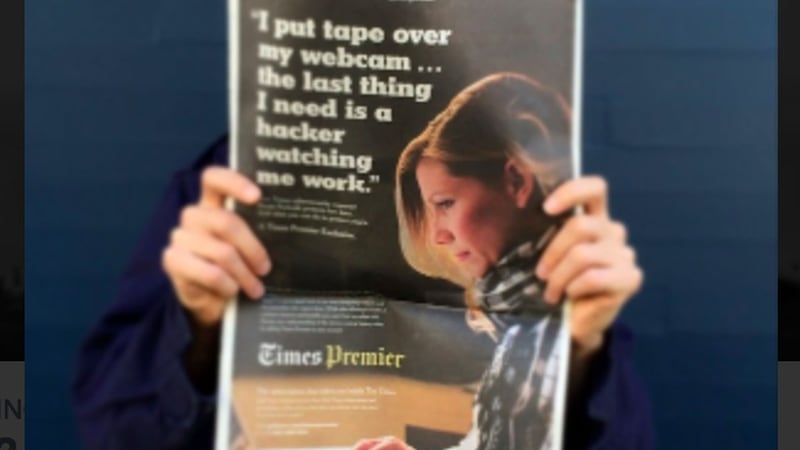In his opening remarks this morning, Mayor Ted Wheeler hit the bright themes of TechFestNW 2017: success, growth and opportunity. Portland's tech industry employs 10,500 people, he noted.
During her chat with Arizona State University's G. Pascal Zachary, New York Times cybersecurity reporter Nicole Perlroth painted with much darker colors.
What she described was "FUD," in the language of the tech world: "fear, uncertainty and doubt."
What keeps her up at night (it's the kind of job that would) is the increasing interconnectivity between the United States' physical infrastructure—from power grids to oil rigs—and the internet.
She's also troubled by the long-term resistance of political and corporate leaders to investing in defending against cyber attacks.
"There really are adversaries out there that are trying to do us harm, and they've decided that cyber is really the way to level the playing field," Perlroth noted.
Much of the code used in the largest American tech companies continues to be vulnerable to attack, and hackers use highly creative means to find information.
"A lot of the investment in the intelligence agencies has gone into offense," Perlroth said. "There's been very little on the defense end."
Perlroth didn't hold back in her criticism of the U.S. government.
"What's really sort of terrifying about this [open market for cyberweaponry] is the U.S. government and our allies were the ones that really catalyzed this market."
The gaps in cybersecurity have become particularly glaring in the wake of Russian hacks into the Democratic National Committee emails, which she reported.
Perlroth says she's convinced foreign governments could do worse—including using computer viruses to cause physical disasters, like a train wreck or plane crash.
She offered other examples today of how the Internet of Things connects everyday objects to the web: "cars, baby monitors, bodies, refrigerators."
Dressed all in black—black shoes, black jacket, black shirt, black jeans—Perlroth riveted a large audience in the Portland Art Museum's Grand Ballroom during a too-brief, 30-minute discussion liberally leavened with humor and self deprecation.
She took only a moment to completely disarm all listeners.
"I am Nicole Perlroth from the failing New York Times."
Her frank comments continued throughout the talk. Perlroth is currently on leave from the Times, finishing a book tentatively titled "This is How They Tell Me the World Will End."
Among her admissions and comments, at times disturbing in their implications, but delivered with a sense of humor that at one point had Zachary snorting into his wireless microphone:
- Perlroth at one point became convinced her TV cable box was “some kind of Chinese spying device.”
- She often reverts to the most old-fashioned of security techniques: leaving all devices at home—particularly during regular dim sum meetings with a source.
- Her current job can be “really depressing, it’s very depressing.” She joked that she was looking forward to coasting as a “home and garden” reporter for the Times, but then they “shut that [section] down.”
- Perlroth felt like she was the “least technically qualified” for her current job, until editors told her they couldn’t understand what other interviewees were talking about.
- In her first story for the Times, she “made a really amateur move” by not calling Goldman Sachs in a story about a hacker who showed her how easy it was to access the investment banking company’s boardroom via video technology exposures.
Perlroth is encouraged by recent initiatives such as Google offering a bounty for anyone who can point out serious vulnerabilities in their code, and Facebook beginning to identify "fake news" stories to users in its timeline.
Her recommendation?
"I really feel like the only answer is to improve our public education system, and the lack of investment in public education is coming back to bite us."
Earlier in the morning, Wheeler noted in his opening comments that not only is the tech community growing in Portland, which he says is "often used as a beta tester" by large companies, but it's growing more diverse.
"22 companies employing over 2,000 people have signed on to the TechTown Diversity Pledge," Wheeler noted. "I applaud the Portland Development Commission for bringing them together."
Wheeler's words were appreciated by a reporter's tablemates from PDX Women in Tech, Nadya Ighani and Karrisa Barrera. Still, they cautioned that Portland continues to struggle with low rates of inclusivity and diversity in technology fields.
Disclosure: TechFestNW is sponsored by Willamette Week.
